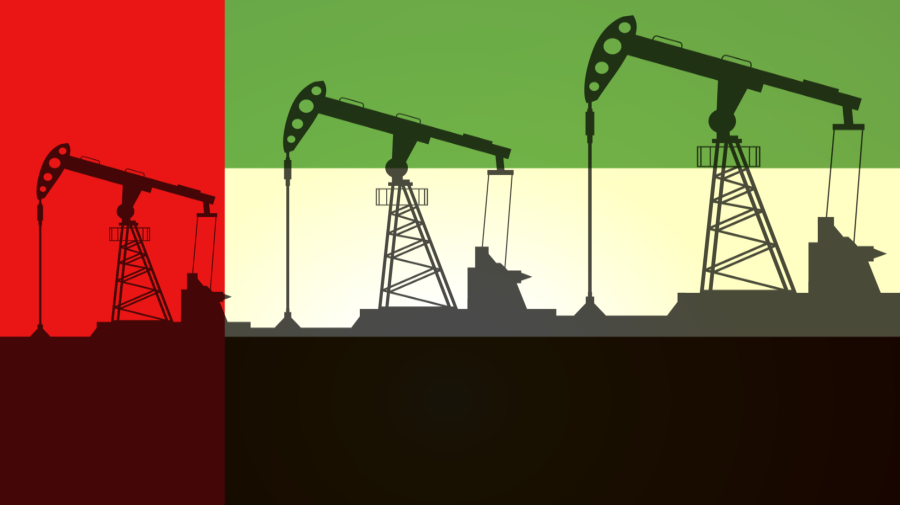
Senior Vice President of Research and Development Dr. Steve Griffiths shares insights from his recent EDA report and upcoming WFES panel on the value of bilateral diplomacy for oil exporters
Energy diplomacy – specifically bilateral diplomacy – is an invaluable tool for countries navigating the changing global energy landscape and their own energy transitions. The UAE, as country transitioning from a hydrocarbon-dependent economy, to a diversified knowledge economy, provides many lessons for other hydrocarbon economies, which also offer indications for where to further direct the country’s diplomatic efforts.
I recently published a report with the Emirates Diplomatic Academy Insighttitled ‘Bilateral Energy Diplomacy in a Time of Energy Transition’, in which I shared my overview and analysis of bilateral energy diplomacy as a foreign policy tool, analyzed the strategic objectives of bilateral energy diplomacy for the Gulf Cooperation Council countries, provided a case study on the UAE, and ended with foreign policy conclusions and recommendations for enhancing bilateral energy diplomacy for the UAE and all hydrocarbon-exporting countries.
The report findings, which I will be discussing at the upcoming World Future Energy Summit (WFES) Energy Transition Forum Program, in a panel on 15 January titled ‘In Conversation: The foreign relations of energy transition – positioning the Gulf’, explain how the UAE is uniquely positioned to take advantage of the current state of flux in the energy market through energy diplomacy.
The world is in the early stages of its energy transition away from dependence on hydrocarbons to renewable energy. This change presents many challenges for oil and gas exporting countries in terms of their economic and political relationships and calculus, particularly those, like the UAE, which are simultaneously developing clean energy technologies.
The UAE has already been developing strategic bilateral relationships regionally and globally in an effort to effectively position itself for the energy transition. In 2017 the UAE launched its Soft Power Strategy, which aims to increase the UAE’s global reputation abroad by highlighting to the world its identity, heritage, culture and global contributions. The pillars of this strategy are diplomacy in its many forms, including humanitarian, scientific and academic, cultural and economic.
The UAE’s core energy relationships are currently with China, India, Japan, South Korea, Singapore and Thailand, and each of these countries factors strongly into the UAE’s foreign policy not only as a market for oil exports, but also for broader energy and economic relations. Incidentally, each of the UAE’s key Asian trade partners is also classified as ‘special’, according to the bilateral diplomatic relations classifications of peripheral, normal, and special. This reveals the importance that the UAE gives to these relationships.
As bilateral energy diplomacy aims to ensure a country’s long-term energy security and economic well-being by fostering foreign relationships with energy suppliers and customers, I recommend the UAE continue to strengthen its relationships and efforts in bilateral energy diplomacy. The UAE’s dual energy diplomacy interests arising from the globalenergy transition include developing business opportunities to monetize the country’s hydrocarbon resources and ensuring economic diversification that lessens dependence on oil export revenues.
Based on these considerations, I make the following bilateral energy diplomacy recommendations:
Develop special bilateral relationships with countries that can provide strategic benefit during the energy transition: The UAE has already established special strategic bilateral relationships with a number of countries that are important partners for energy and economic reasons. Additional special relationships may be formed with countries that have strong capabilities in key growth areas such as petrochemicals.
Engage key national stakeholders beyond the ministry or department overseeing foreign affairs in the fostering of special bilateral relationships: Special bilateral relationships require regular consultations between partner countries and the UAE’s political leadership. These consultations will of course include the UAE Ministry of Foreign Affairs and International Cooperation but should extend to other UAE ministries dealing with energy, industry, environment and technology. Organizations such as ADNOC and Mubadala already play an important diplomatic role in bilateral energy diplomacy and their engagement is important.
Develop and leverage soft power in bilateral energy relationships: The UAE has effectively exercised soft power via multiple bilateral investment relationships established by Mubadala as well as other UAE government organizations. The establishment of UAE-China Week is a further effort toward soft power that could be replicated in other key bilateral relations.
Pursue bilateral collaborations to advance national science and technology capabilities:Digitalization, and particularly AI, is one of the most critical areas of advanced technology development across all industries. The UAE’s strong bilateral ties with countries at the forefront of AI, especially China, make AI collaboration an important opportunity that can have direct benefit for the country’s energy sector.
Engage in multilateral diplomacy to complement bilateral efforts: Multilateral diplomacy will continue to be important for the UAE to secure a voice in global energy governance. This means that the UAE’s current strong engagements with the IRENA, OPEC and other multilateral organizations that are shaping the global energy dialogue are essential.
While these recommendations are derived from analysis of the UAE’s context and initiatives, they are broadly applicable to the bilateral energy diplomacy of hydrocarbon-exporting countries.
Dr. Steve Griffiths is Senior Vice President of Research and Development at the Khalifa University of Science and Technology.